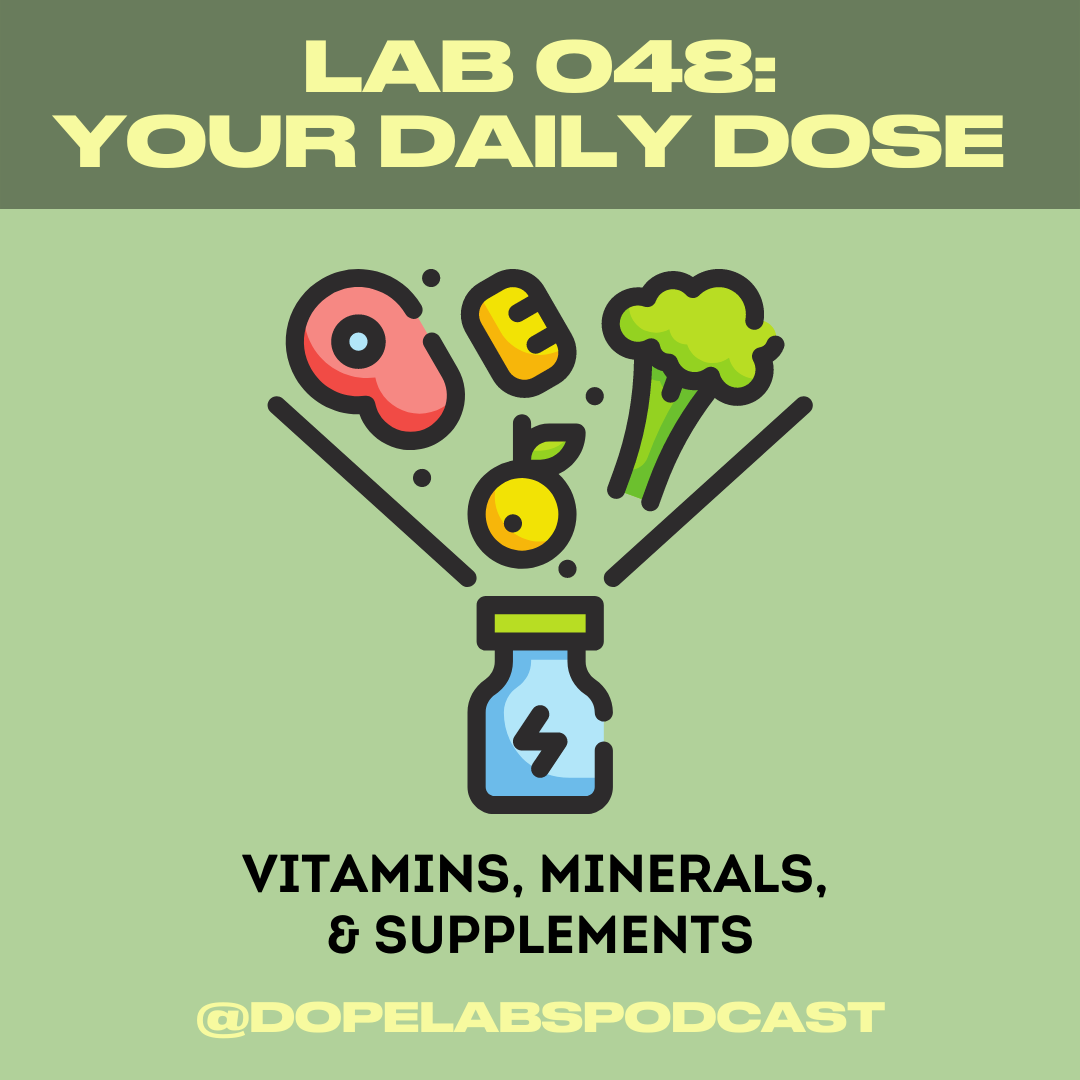Lab 048: Your Daily Dose
About This Lab
This week we talked to Dr. Alice Lichtenstein about vitamins and nutrition.
Vitamins are organic and our bodies need them in order to grow (and just maintain healthy function too).
There are 13 essential vitamins necessary for our bodies to function properly, but our bodies only make two of them: Vitamin D and Vitamin K. So we find ourselves outsourcing for the others: Vitamins A, C, E, Thiamine, Riboflavin, Niacin, Pantothenic Acid, B-6, B-12, Folic Acid, and Biotin.
We get vitamins from what we eat and they are found in both plant and animal based foods.
Minerals, on the other hand are inorganic and come from rocks, soil, and water. Some common minerals include iron, calcium, and zinc.
Dr. Lichtenstein talked about the difference between fat soluble and water soluble vitamins, and what this means for absorption and storage in the body.
Water soluble vitamins easily dissolve in water, and because of this, it’s hard for the human body to store excess amounts for later.
The B vitamins are water-soluble and have multiple roles. A few notes are included below (not exhaustive).
Folate (B9) - especially important during pregnancy, deficiency can lead to anemia
Riboflavin (B2) helps in red blood cell production
Biotin (B7) - a contributor to keratin and a reason many people take biotin supplements for hair, skin and nails. It’s used in metabolism & deficiencies can lead to anemia and depression. There’s an interesting link between raw egg whites and biotin deficiency
Also known as ascorbic acid
Commonly taken as an immune system “booster”
Useful to increase iron absorption
Deficiency is known as scurvy
Fat-Soluble Vitamins are better absorbed when consumed along with fats. They can be stored
So, is the case of more is better and better is more? NOPE! Studies show that taking too many vitamins and supplements makes your body absorb less and do more harm than good.
Check out this informative from urologist, Dr. Ashley Winter, outlining the dangers of megadosing, which is taking huge amounts of vitamin supplements (even without a previously diagnosed deficiency).
Here is a prior thread I did on the matter talking about the physiology of vitamin C & D and kidney stones! Pls read! https://t.co/1vNqEGCslY
— Ashley Winter MD || Urologist (@AshleyGWinter) January 21, 2022
We need to meet essential nutrient requirements for optimal functioning, but it’s not one size fits all. The specific combination of vitamins and minerals needs to be juuuusttt right! There are certain nutrients where if you have a high dose of one and a normal balance of the other, taking too many can interfere with that. We can’t generalize all vitamins and supplements; they are all individually unique.
Guest Experts
Dr. Alice Lichtenstein is the Stanley N. Gershoff Professor of Nutrition Science and Policy in the Friedman School at Tufts University. She is also Director and Senior Scientist of the Cardiovascular Nutrition Laboratory at the Jean Mayer USDA Human Nutrition Research Center on Aging (HNRCA) at Tufts University.

